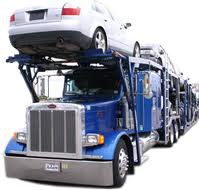
Car shipping contracts are generally written to protect the auto transporter, so it behooves customers to thoroughly read these documents before agreeing to work with a company. However, never expect a contract to be written in stone. Customers can always negotiate the details of a contract, though some may find that it’s easier to avoid working with a company that utilizes unfair contracts altogether.
Negotiating a Contract
Contracts must contain all the auto shipping services agreed upon. If a service is not listed in the contract, do not expect the company to fulfill the request – even if the request was agreed upon verbally. Therefore, it’s important to inspect the terms yourself, and ask that missing services be added before ever signing off.
Typical points of negotiation in auto transport contracts include:
- Whether cancellation fees are applicable if the broker has yet to find a driver.
- The ability to obtain a refund if a transport truck driver is not found within a specific time period, or if the driver does not arrive within a reasonable amount of time after the scheduled pick-up date.
- Reimbursement for the services of a rental car company if the transport time exceeds the estimated delivery date.
- The deductible required for repairs to damage incurred during the shipping process.
Typical Auto Transport Stipulations
Most auto shipping contracts will not cover mechanical or electrical parts during shipment, which can be damaged due to vibration or wear. Additionally, contracts will never accept responsibility for aftermarket parts, personal items left inside the vehicle, and damage to the car as a result of road conditions, weather, low-hanging trees, and leaking fluids from other vehicles. Verify whether your personal car insurance covers these items.
If you do discover that your vehicle has been damaged during transport, or violations of the contract occurred, make note of it on the Bill of Lading when you receive your vehicle. Then, you can make a claim with the car transporter’s insurance company. You can also file a complaint with the Federal Motor Carrier Safety Administration and the Better Business Bureau.




